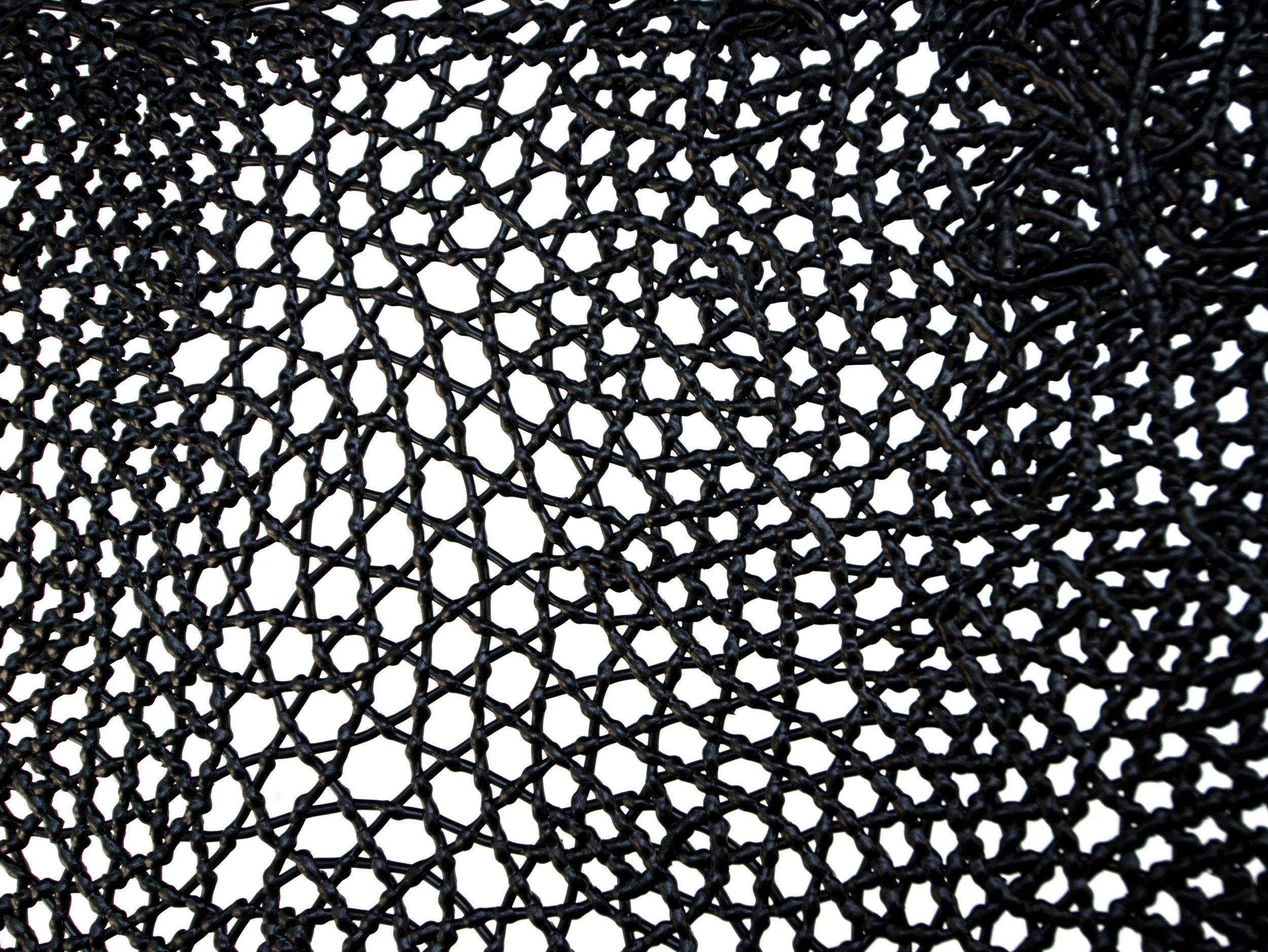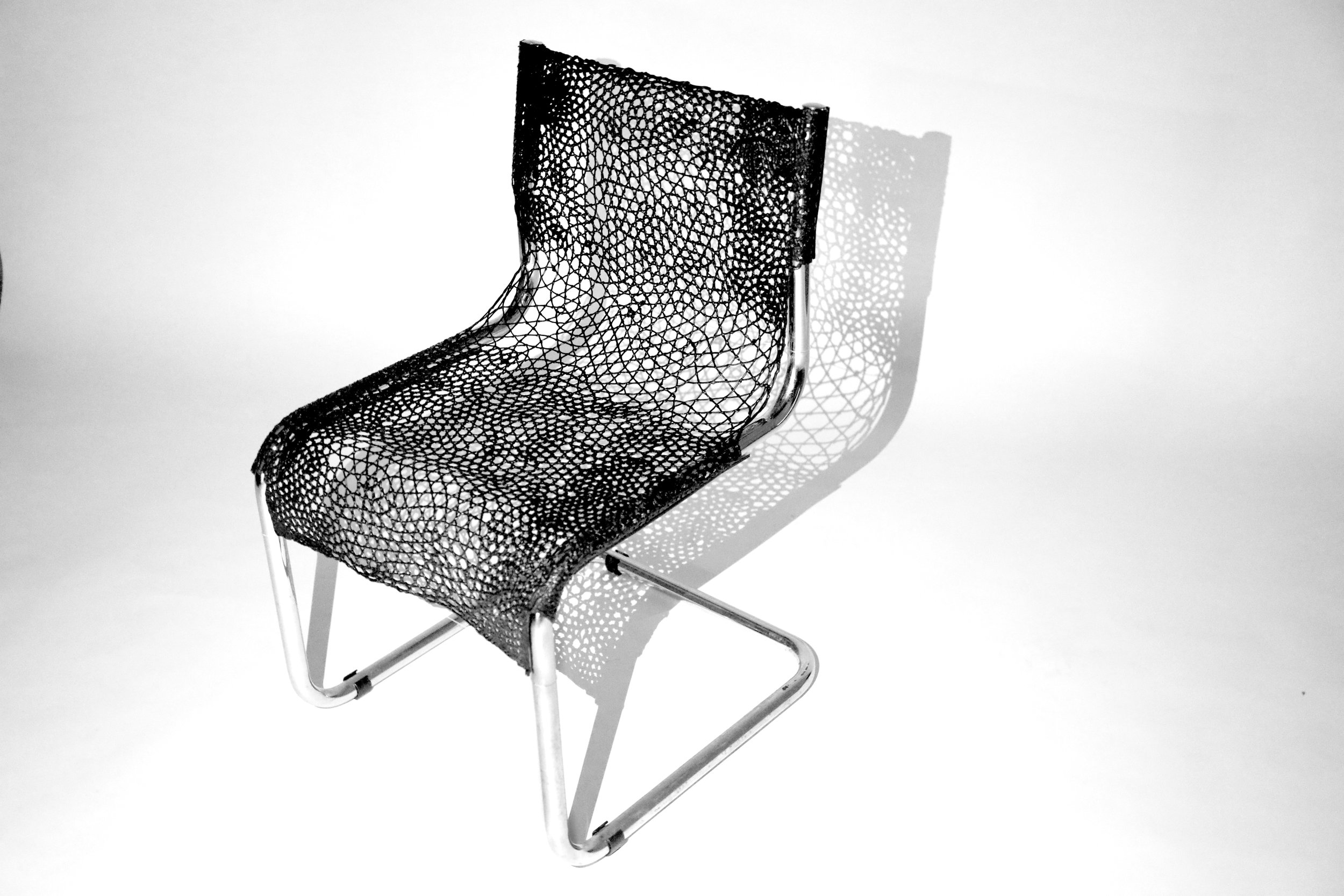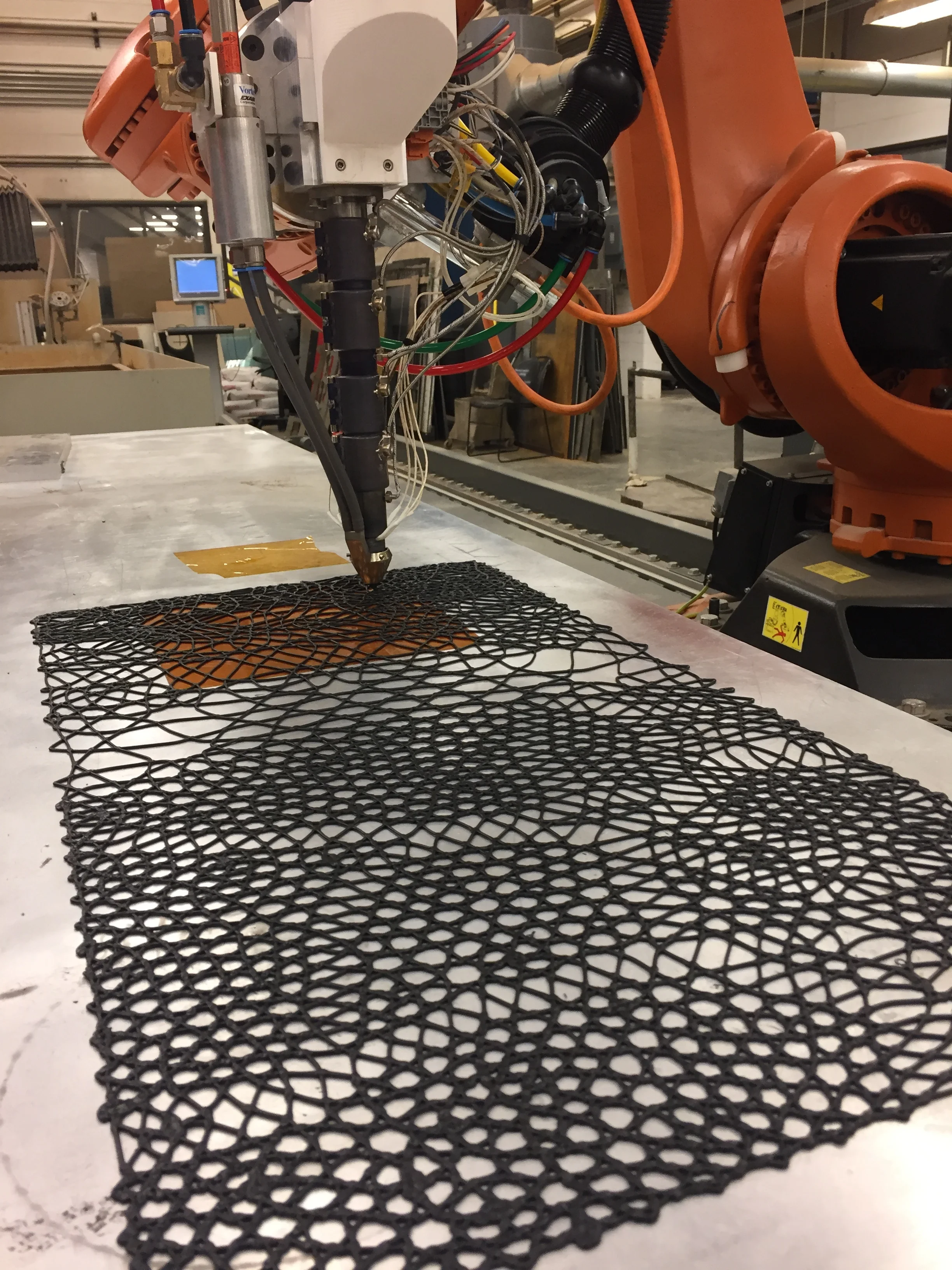Project Description
Prototype installed in Sydney Tin Shed Gallery as a part of the Design Research Conference, September 2018
Published in ACADIA 2018 Proceedings, IASS 2018 Proceedings, and the Journal Structures
Topological optimization processes are well understood and widely used within the realm of structural engineering and have been increasingly adopted in architectural design and research. However, there has been little research devoted to the topological optimization of tensile surfaces. This project develops an optimization method for additively manufactured tensile cable nets that attempts to bridge between the domains of topological optimization and functionally graded material by reframing the scale of topological optimization processes. Instead of focusing on the topology optimization at the macro-scale of cable nets, this research develops a method to optimize the meso-scale topology and defines metamaterial units with different properties to be aggregated into a complex whole. This reorientation from the formal towards the material domain signals an engagement with morphogenetic modes of design that find formal expression through bottom-up material processes. Using Marcel Breuer’s iconic Cesca Chair as the site for the explorations, these studies reinvent Breuer’s woven cane surfaces into continuous, functionally graded cable-net surface. The goal of such explorations is to differentiate the material system in response to the stresses in the surface to efficiently deposit material only where it is needed most.













